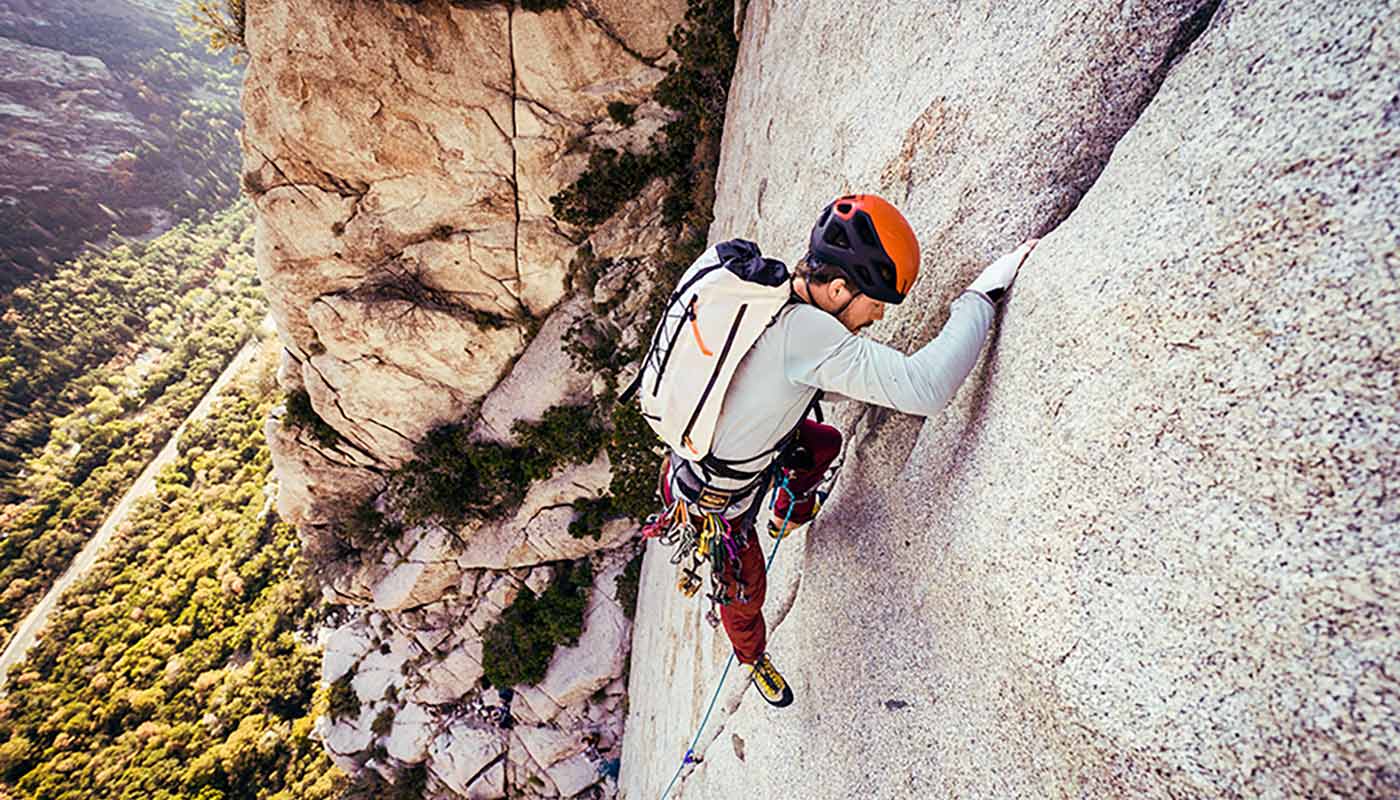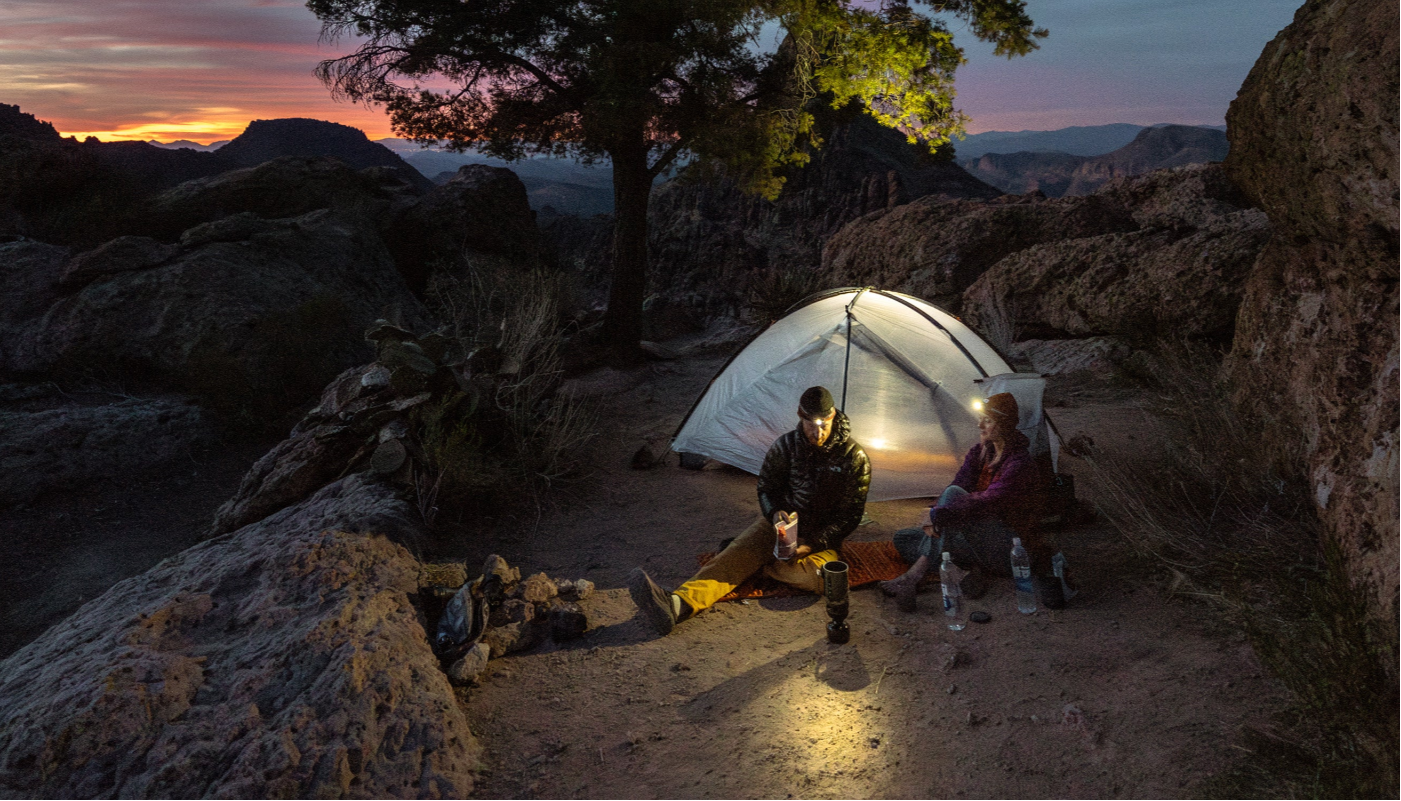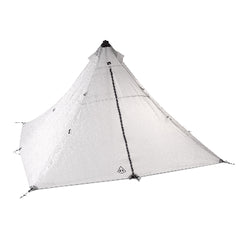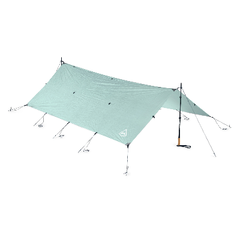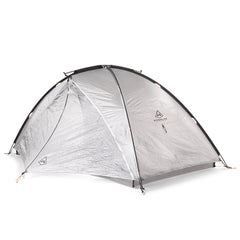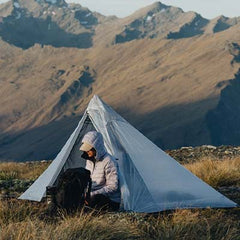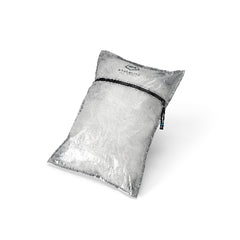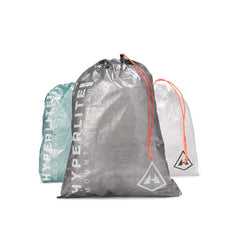Words and Photos by Max Kiel
Fortitude /ˈfȯr-tə-ˌtüd: strength of mind that enables a person to encounter danger or bear pain or adversity with courage
I'm not going to lie; my time spent thru hiking the Appalachian Trail pushed me to close my psychological limits. Day after day, week after week, month after month, I followed the same routine of waking up, breaking down camp, hiking all day, setting up camp, then going to sleep.
But Max, that sounds like such a simple and easy lifestyle. I want to live the simple life of a thru-hiker!

Yes, one's lifestyle changes drastically when on trail; no meetings, no emails, no traffic—just walking, eating, and sleeping. This certainly is a simple and enjoyable way of living–but simple does not necessarily equate too easy.
In fact, a thru hike is anything but easy.
The physical challenges of a thru hike make themselves very present early on. Trekking hundreds or thousands of miles through remote, unforgiving landscapes will take its toll on the body. Injuries are common and listening to your body will make or break your journey.
Then there's the logistical side, such as knowing what proper gear to bring, researching the terrain and weather, etc. Even getting to the start of the trail is a logistical challenge for many.
The physical and logistical sides of a thru hike are difficult enough on their own, but the mental grind poses the biggest challenge. Of course, injuries are a big factor in driving hikers off-trail, but mental fatigue and loss of motivation are the number one reason.
You can have the lightest base weight on trail, be in tip-top shape, and have spent months logistically planning and saving funds for your thru hike, but none of this matters if you aren't ready to rise above the mental challenges you will undoubtedly face along the way.
Don't get me wrong; having the proper gear and being knowledgeable is extremely important. But failure to take care of your mental health, become comfortable with being uncomfortable, and accept the realities of trail life will most likely result in a failed attempt.
So, how does one actually keep their fortitude throughout the duration of an entire thru hike? It's not an easy task, and everyone has their own ways of staying motivated on trail. Here is some advice that I was given and some lessons I learned along the way to help me accomplish my dream of being an AT thru hiker.

Embracing the Grind
It was a hot Spring afternoon on the Appalachian Trail in Virginia, and I was making my way across a hilly, exposed cow pasture. Exhausted and drenched in sweat, I stopped for an extended lunch break at the next stream crossing. Taking out my phone, I noticed I had cell service and opened up Instagram.
My good friend and fellow thru hiker Rastalaurian posted a poll on her story, posing the question, "Is a thru hike a vacation?" I pondered this question briefly, thought about the current situation I was in, and selected "No."
If I had been asked the same question one month ago, during the first couple weeks of my trip, I might have said yes. This is because the early days of a thru-hike sort of feel like an extended backpacking getaway with friends. Everything feels so new, you're making tons of friends and meeting new people, and you've never felt so free in your new nomadic, minimalist lifestyle.
However, we all quickly learn that a thru hike is very hard work and that no one is forcing us to continue when the going gets tough. Roughly 75% of those who attempt the AT don't make it, with most people dropping within the first month.
I accepted and became comfortable with the realities of my new lifestyle within this first month. I knew that the next few months were going to be really tough and that some days were going to flat out suck. But I knew that it would all be worth it. Those who have aspirations of enjoying every moment of their thru hikes are almost always disappointed and ultimately get off trail.
When I think back to some tough days, one 20-mile slog through heavy rains and mud in Southern Vermont distinguishes itself as the most miserable I had felt (maybe in all my life?).
It had been raining for a couple of days, everything I owned was wet, and I was still a couple of days away from the next town stop with food supplies quickly dwindling. Only one thing mattered at that moment: putting one foot in front of the other. I was far enough into my journey to know that this shitty moment wouldn't last forever. I could either choose to accept the reality of my situation or look for an easy bail-out option. Pushing through those rough days makes you appreciate the great days even more. Some people fail to learn this.
A thru hike is a beautiful, fulfilling, life-changing journey. Above all, it's a physical and mental grind that requires us to push through tough times. Once you accept it for what it really is, the chances of completion grow exponentially.

Having a Short-Term Memory
No two days are ever exactly alike. The terrain might be very similar, but how the day unfolds and what you experience will almost always differ from day to day. With the good also comes the bad.
Accepting the reality of tough situations is one thing but moving on unphased is another. There will be days where the trail will have you feeling defeated, but bouncing back with more determination and motivation is what is most important.
I know that I've had my fair share of days where it felt like the trail did nothing but chew me up and spit me out. Now that I think about it, this describes almost every day in New Hampshire for me.
The White Mountains are known for their unforgiving terrain and unpredictable weather, and this was the toughest stretch of trail for me, physically and mentally. Even though it seemed like I was fighting a losing battle against these mountains, I always found a way to wake up the next morning and give it another shot, determined to make forward progress.
Every accomplished thru hiker has had the experience of bouncing back and pressing forward after a tough string of days. Thru hikers are a resilient bunch, and resiliency is a required characteristic for making it happen.
Unexpected mistakes happen all the time–it's part of the process of improving our backcountry skills. It does no good to dwell on them–something I had to learn on the trail.

I can remember one instance when, after checking the forecast and feeling certain there would be no rain, I fell asleep with my shoes outside of my tent vestibule, leaving them fully exposed to the elements.
Sure enough, I woke up to the sound of rain and to waterlogged shoes that weighed nearly three times their original weight. This completely threw me out of sync, and I headed down the trail with a sour attitude. And for the first time, I said to myself and to my friend Jackrabbit, "I am so ready to finish this thing up."
After feeling down in the dumps for the first couple of miles, I achieved a moment of clarity just as there was a break in the rain. I stopped to gather my thoughts and realized that feeling sorry for myself over a dumb mistake is useless. I wasn't the only one making mistakes out there.
Most mistakes we make are not as severe as we make them out to be; at the moment, they may seem detrimental, but in reality, most mistakes won't greatly affect us in the long run. If you think that things won't go wrong at some point during your thru hike, you are sadly mistaken.

Remain Goal Oriented and Celebrate the Small Victories
The total mileage of a thru can seem daunting in the early days of trail, particularly one of the triple crown trails that boost well over 2,000+ miles. It is easy to get intimidated by things like total mileage hiked compared to total mileage remaining.
In the Great Smoky Mountain National Park, two weeks into my hike, I came upon a sign that read: Katahdin, Maine: 1,972 miles.
I initially felt intimidated by seeing this update. This was the first time that I fully grasped just how big the Appalachian Trail really is and how far I still had to go.
I would soon learn that mentally breaking down a thru-hike into sections and completing each section, piece-by-piece, makes it much easier to recognize and celebrate progress than thinking about a trail as one whole entity.
A wise thru-hiker once said, "A thru-hike is really just a bunch of section hikes strung together."
On the Appalachian Trail, many thru-hikers are intimidated by the state of Virginia since it boosts over 550 trail miles, at least one-quarter of the entire route. 'Virginia Blues' is a popular term dubbed by thru hikers who feel stuck in Virginia and fail to recognize progress due to a lack of border crossings. I know PCT thru-hikers must feel the same about California.

Instead of worrying about Virginia as one never-ending state, I simply focused on making it to the next town stop, not the next border crossing. Taking it town-by-town kept me focused on what was immediately ahead instead of worrying about the bigger picture. The next thing I knew, I was crossing into West Virginia and celebrating the halfway point.
How you choose to interpret mileage and distance covered will play a big factor in keeping motivation high. There will be times where it seems like you haven't covered any ground at all when in reality, every step you take brings you closer to your goal.
Throughout most long-distance backpacking trails, signs or markers indicate every 100 miles, either painted on a tree or compiled with sticks on the ground. Each 100-mile marker is a reason to celebrate; it is a representation of how hard you have worked and how far you've come thus far. Thru hikers deserve to celebrate any and all victories or milestones, no matter how big or small they may be.
Making it to the next state, the next town, or even over that next mountain are all reasons to feel proud. You just added another piece to one large puzzle. Enjoy your victories and celebrate each milestone while keeping that end goal in the back of your mind.
I would be lying if I were to say there wasn't a single day where I wasn't daydreaming about standing on Mt. Katahdin as an accomplished thru hiker. On days when Katahdin seemed impossibly far away, I tried to imagine what it would feel like to touch that sign, which signifies all the hard work I'd have put in.

Finding Solace in Fellow Hikers
One aspect of thru hiking that I quickly learned to love is the camaraderie amongst hikers and the communities surrounding each trail. Every hiker is connected by one similar goal of making forward progress, and it is easy to bond with those who share these similar goals and values that you have.
The people you meet may come from different backgrounds, may have more or less trail experience, and maybe even have different outlooks on life. But on trail we are all equals with the same priorities, like searching for that next water source or making it to the next resupply point.
The bonds and relationships hikers build with each other are a big part of the experience; it is easier to share struggles of trail life with others by your side than to do so alone.
During my AT thru hike, I considered myself a solo hiker, occasionally tagging along with other solo hikers or groups. I hiked most of Virginia and all of Pennsylvania completely solo, and I don't regret doing so. You learn a lot about yourself when you only have yourself to rely on, and I encourage every thru hiker to try out some solo time.
Although I was trekking solo, I found solace in speaking and hanging out with other hikers at shelters and hostels at the end of a long, tough day. Only fellow thru hikers know exactly what you have been going through and can relate to everything that has happened thus far.
Speaking with others about the struggles of what you experienced can mean the difference between a bad day and a good day. If you feel like you're the only person struggling, I promise you aren't.
There is so much to learn from other hikers. Every time you meet someone, it provides a chance to learn something new and experience new perspectives. Have confidence in your abilities, and tell yourself that if they can make it, then so can I.
Max Kiel is a New York-based freelance outdoor writer and digital content creator, and a Trail Specialist at Confluence Running. Upon graduating college in the Winter of 2021, he completed a long-time dream of his and thru-hiked the Appalachian Trail. In addition to hiking, Max is also an avid trail-runner, aspiring Ultramarathoner, and Winter mountain explorer who is constantly looking for his next challenge. In his free time, Max can typically be found running around in the local New York hills with his black lab Maverick, training for an upcoming race or expedition. You can follow more of his adventures on his Instagram.
